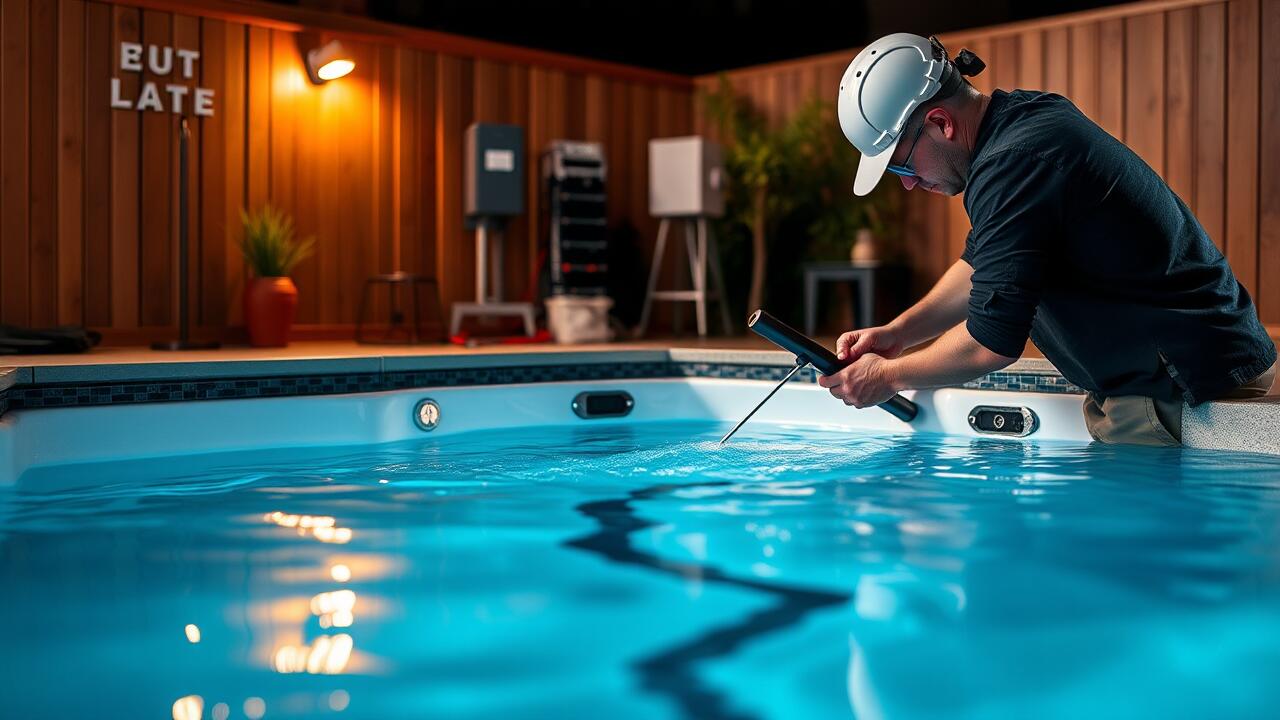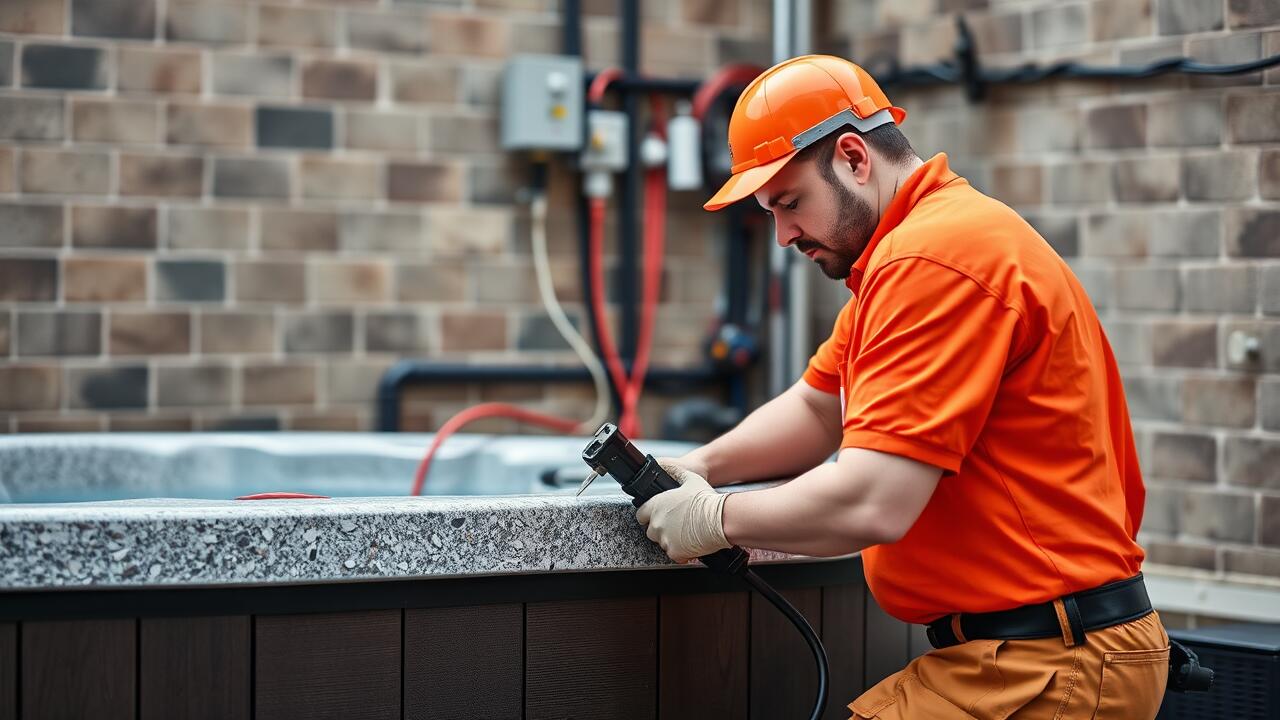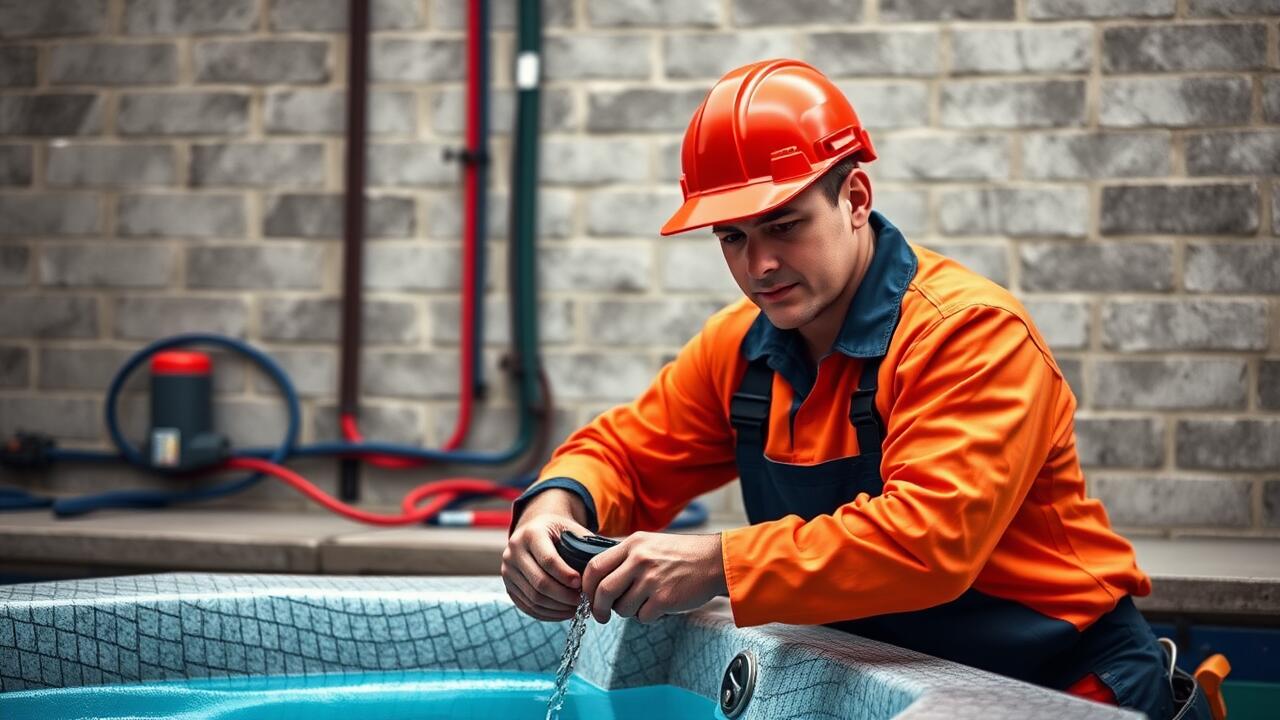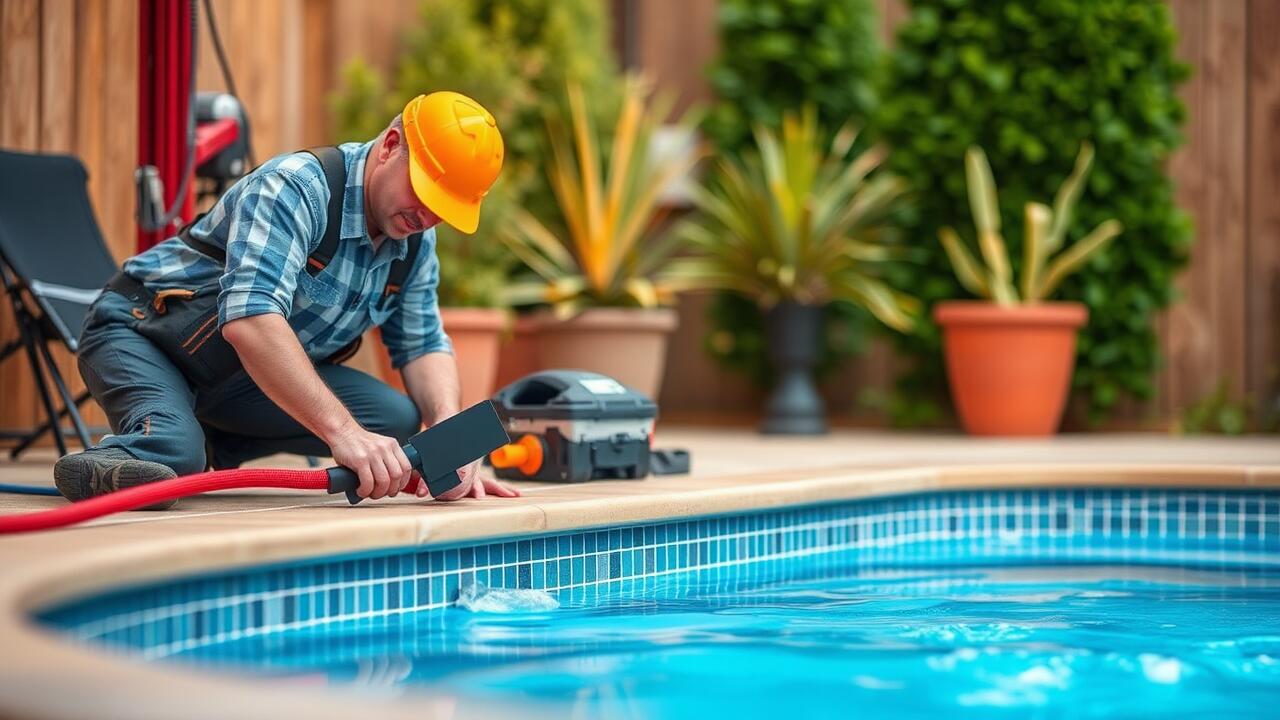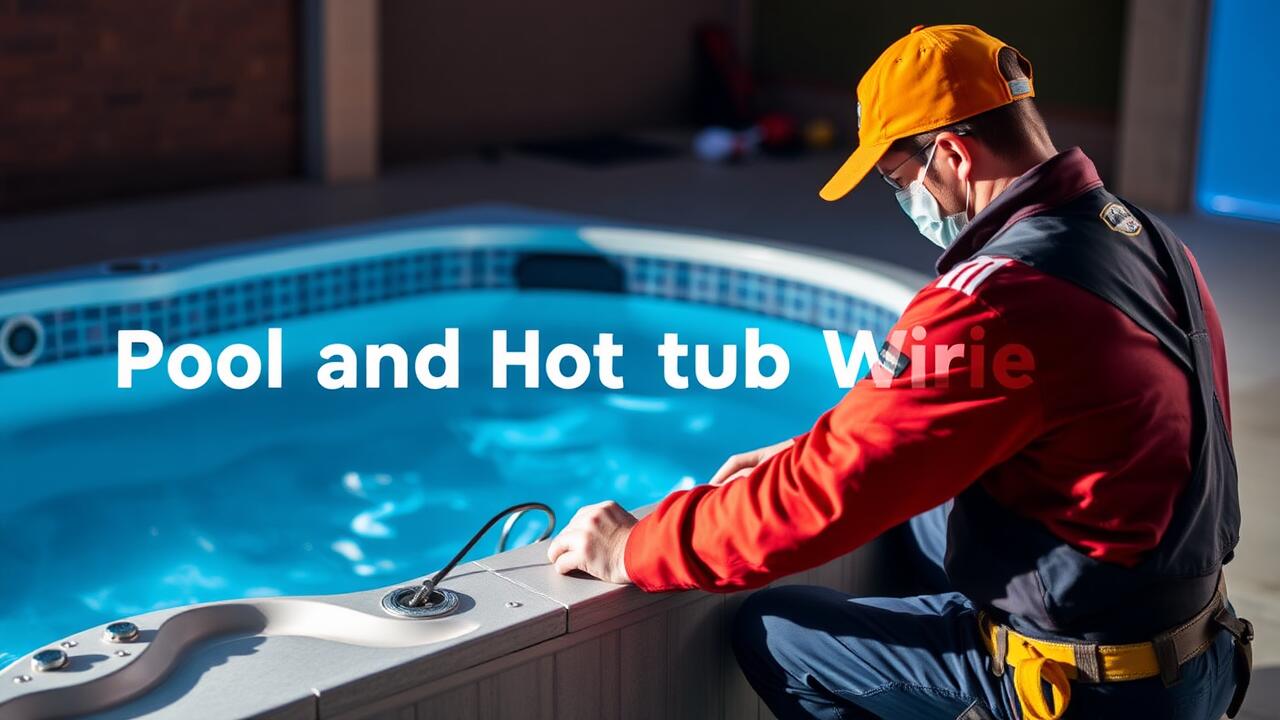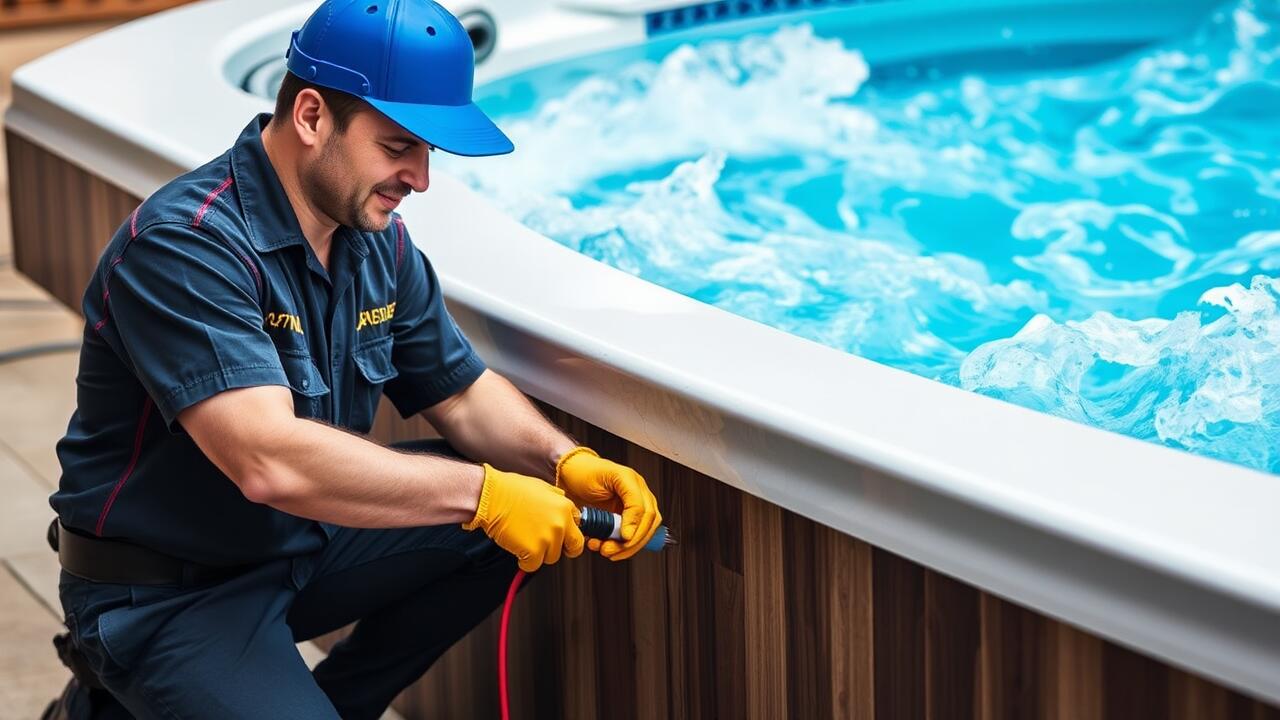
Voltage Compatibility with Existing Systems
When considering the voltage compatibility of swimming pool equipment with existing electrical systems, it is essential to assess the current wiring and circuit breakers in place. Many residential pools operate on standard voltages such as 120V or 240V. Understanding the requirements of the pool equipment will guide homeowners in determining if adjustments to the electrical configuration are necessary.
For those in the Houston area, consulting with local professionals like Pool and Hot Tub Wiring Greater Heights can provide valuable insights. They can help evaluate whether the existing infrastructure aligns with the voltage needs of new pool installations or upgrades. Ensuring compatibility not only prevents operational issues but also enhances overall safety.
Upgrading Your Electrical Infrastructure
Upgrading your electrical infrastructure is essential when considering new pool equipment. This process may involve assessing the current capacity of your electrical system to ensure it can support the demands of newer, more energy-efficient technologies. In some cases, older wiring may need to be replaced to handle the increased load safely. Consulting professionals, like those from Pool and Hot Tub Wiring Bellaire Junction, Houston, can provide guidance on necessary upgrades while ensuring compliance with local codes.
In addition to boosting performance, upgrading your electrical system can enhance the overall safety of your swimming pool environment. A thorough evaluation will help identify any potential hazards or inefficiencies in the existing setup. Properly installed wiring not only improves reliability but also minimizes the risk of electrical malfunctions that could compromise safety. Working with experienced technicians ensures that your pool can safely meet the needs of modern equipment.
Effects of Voltage on Pool Equipment Performance
The performance of swimming pool equipment is heavily influenced by the voltage supply it receives. Equipment designed for specific voltage ranges can operate efficiently and effectively when supplied with the appropriate voltage. For example, pool pumps, heaters, and lighting systems all have optimal voltage standards that enable them to function at peak performance, ensuring reliable operation and longevity.
Using the correct voltage supply not only enhances the performance of the equipment but also reduces wear and tear. When the voltage is aligned with the equipment's specifications, it minimizes the risks of overheating or underperformance. Pool and Hot Tub Wiring Spring Branch West, Houston, emphasizes the importance of adhering to these voltage requirements. Ensuring that all electrical components receive the correct voltage can lead to improved efficiency and a more enjoyable swimming experience.
Impact of Incorrect Voltage Supply
Using incorrect voltage supply for swimming pool equipment can lead to severe operational issues. Equipment designed for specific voltage ratings may experience malfunctions when supplied with insufficient or excessive voltage. This can manifest as suboptimal performance, leading to inadequate heating or filtration of pool water. Components may become prematurely damaged, resulting in costly repairs or replacements. Therefore, ensuring the right voltage is critical for maintaining the longevity of your pool equipment.
In addition to performance concerns, incorrect voltage supply can pose safety hazards. Electrical surges can increase the risk of shorts or fires, putting users at potential risk. Adhering to established voltage requirements protects both the equipment and the users. For reliable guidance on installation and compliance, professionals from Pool and Hot Tub Wiring Greenspoint, Houston, can help ensure everything is set up correctly and safely.
Energy Efficiency and Voltage Selection
Choosing the correct voltage for swimming pool equipment is essential for optimizing energy efficiency. Devices designed for specific voltage levels operate most effectively when installed correctly. This ensures that the equipment runs smoothly and uses only the necessary amount of energy, thereby minimizing waste and lowering utility bills. Pool and Hot Tub Wiring Spring Branch West, Houston, can help ensure that proper voltage ratings are used, enhancing the overall functionality of your pool.
Incorporating energy-efficient practices in voltage selection can make a significant difference in performance over time. When equipment operates at its intended voltage, it reduces wear and tear, extending the lifespan of pumps, heaters, and other essential components. With the assistance of professionals, homeowners can align their choices with the most energy-efficient options available, leading to substantial savings in both energy costs and maintenance expenses.
Benefits of Choosing the Right Voltage
Selecting the appropriate voltage for swimming pool equipment significantly enhances efficiency and reduces operational costs. When devices operate at their designated voltage, energy is used more effectively, resulting in lower electricity bills. Choosing the right voltage also extends the lifespan of equipment, minimizing wear and tear on components. This proactive approach ensures that homeowners can enjoy their pools with peace of mind, knowing their systems function optimally.
In areas like Pool and Hot Tub Wiring Spring Branch West, Houston, the importance of proper voltage cannot be overstated. Local regulations may require specific voltage levels for safety and performance. Ensuring that your swimming pool equipment meets these standards not only guarantees compliance but also fosters a more reliable and safe environment for users. Using the correct voltage helps prevent malfunction and reduces the risk of electrical hazards, making it a crucial aspect of pool maintenance.
FAQS
What voltage is typically used for swimming pool equipment?
Most swimming pool equipment operates on either 120V or 240V, depending on the specific type of equipment and its power requirements.
How can I determine if my existing electrical system is compatible with my pool equipment?
Check the voltage rating of your pool equipment and compare it to your existing electrical system. You may need to consult an electrician to assess compatibility and any necessary upgrades.
What are the signs that my pool equipment is not receiving the correct voltage?
Signs of incorrect voltage supply can include equipment failure, tripped circuit breakers, flickering lights, or equipment running inefficiently or making unusual noises.
How does choosing the right voltage impact energy efficiency for pool equipment?
Selecting the appropriate voltage can enhance energy efficiency, as equipment designed for a specific voltage range operates more effectively, reducing energy waste and lowering utility bills.
What should I do if I suspect my pool equipment is operating at the wrong voltage?
If you suspect your pool equipment is operating at the wrong voltage, immediately disconnect the equipment and consult a qualified electrician to inspect your electrical system and make necessary adjustments.
